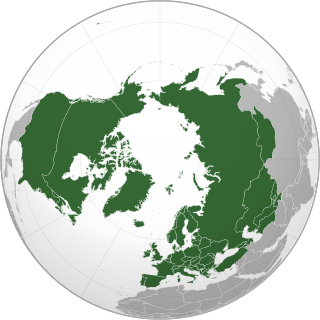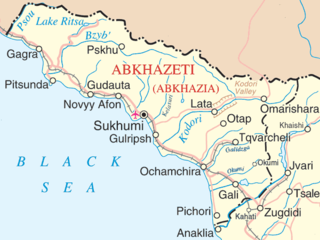| UN Security Council Resolution 1036 | |
|---|---|
| Date | 12 January 1996 |
| Meeting no. | 3,618 |
| Code | S/RES/1036 (Document) |
| Subject | The situation in Georgia |
Voting summary | 15 voted for None voted against None abstained |
| Result | Adopted |
| Security Council composition | |
Permanent members | |
Non-permanent members | |
United Nations Security Council resolution 1036, adopted unanimously on 12 January 1996, after reaffirming all resolutions on Georgia, particularly 993 (1995), the Council discussed efforts for a political settlement between Georgia and Abkhazia and extended the mandate of the United Nations Observer Mission in Georgia (UNOMIG) for another six months until 12 July 1996. [1]
A United Nations Security Council resolution is a UN resolution adopted by the fifteen members of the Security Council; the UN body charged with "primary responsibility for the maintenance of international peace and security".

Georgia is a country in the Caucasus region of Eurasia. Located at the crossroads of Western Asia and Eastern Europe, it is bounded to the west by the Black Sea, to the north by Russia, to the south by Turkey and Armenia, and to the southeast by Azerbaijan. The capital and largest city is Tbilisi. Georgia covers a territory of 69,700 square kilometres (26,911 sq mi), and its 2017 population is about 3.718 million. Georgia is a unitary semi-presidential republic, with the government elected through a representative democracy.

United Nations Security Council resolution 993, adopted unanimously on 12 May 1995, after reaffirming all resolutions on Georgia, particularly 971 (1995), the Council discussed efforts for a political settlement between Georgia and Abkhazia and extended the mandate of the United Nations Observer Mission in Georgia (UNOMIG) until 12 January 1996.
Contents
In November 1995, presidential elections were held in Georgia and the Council hoped they would contribute to an agreement on the conflict in Abkhazia. It also reaffirmed the right of all refugees to return the region, which was being obstructed by Abkhaz authorities. The humanitarian situation had deteriorated, especially in the Gali region, and there were concerns about violence and killings in that region. Co-operation between UNOMIG and the Commonwealth of Independent States (CIS) peacekeeping forces was welcomed, and the Agreement on a Cease-fire and Separation of Forces was being respected.

The Commonwealth of Independent States (CIS) is a regional intergovernmental organization of 10 post-Soviet republics in Eurasia formed following the dissolution of the Soviet Union. It has an area of 20,368,759 km² and has an estimated population of 239,796,010. The CIS encourages cooperation in economical, political and military affairs and has certain powers to coordinate trade, finance, lawmaking and security. It has also promoted cooperation on cross-border crime prevention.

Peacekeeping refers to activities intended to create conditions that favour lasting peace. Research generally finds that peacekeeping reduces civilian and battlefield deaths and reduces the risk of renewed warfare.
The Security Council was concerned that talks on an overall agreement were being delayed. Encouraging further efforts from the Organization for Security and Co-operation in Europe (OSCE), the Council demanded that the Abkhaz side make progress in the talks and allow the safe return of refugees and displaced persons. [2] Furthermore, ethnic killings and human rights violations in Abkhazia were condemned.

The Organization for Security and Co-operation in Europe (OSCE) is the world's largest security-oriented intergovernmental organization. Its mandate includes issues such as arms control, promotion of human rights, freedom of the press, and fair elections. It employs around 3,460 people, mostly in its field operations but also in its secretariat in Vienna, Austria and its institutions. It has its origins in the 1975 Conference on Security and Co-operation in Europe (CSCE) held in Helsinki, Finland.
Both parties were instructed to improve co-operation with UNOMIG and CIS peacekeeping forces especially in regard to inspections of heavy weapon sites, and the Secretary-General Boutros Boutros-Ghali was requested to report after three months on the situation in the region.

Boutros Boutros-Ghali was an Egyptian politician and diplomat who was the sixth Secretary-General of the United Nations (UN) from January 1992 to December 1996. An academic and former Vice Foreign Minister of Egypt, Boutros-Ghali oversaw the UN at a time when it dealt with several world crises, including the breakup of Yugoslavia and the Rwandan genocide. He was then the first Secretary-General of the Organisation internationale de la Francophonie from 16 November 1997 to 31 December 2002.

















